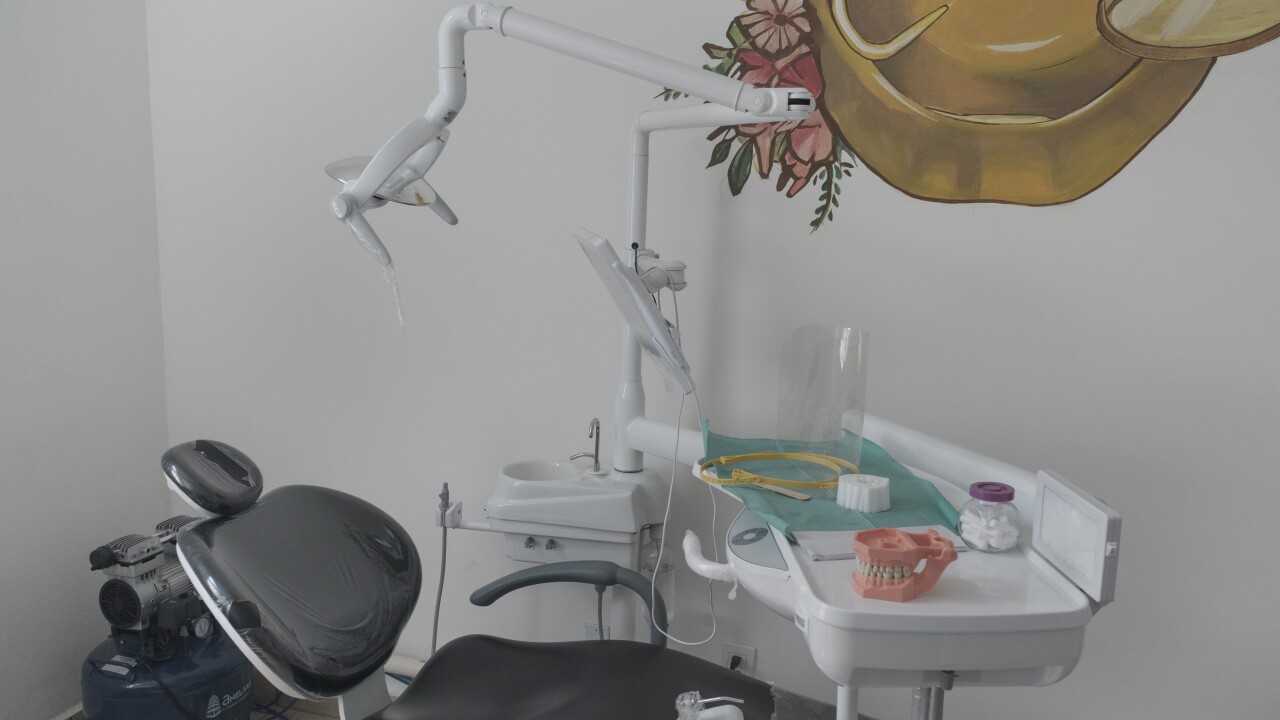G-20 Begets W-20: The G-20 Finance Ministers and Central Bank Governors convened in Ankara, Turkey last weekend, where they formed the W-20, a group of female leaders committed to boosting the role of women in the global workforce. Female empowerment is "an absolute economic no-brainer," Christine Lagarde said. The International Monetary Fund director stressed that gender-inclusive economic growth can raise overall per capita income, tackle poverty, and reduce income inequality worldwide. Last year the G-20 pledged to reduce the global women's labor-force participation gap 25% over 10 years, which could ostensibly create 100 million new jobs in that time. Last weekend, Lagarde warned that talk is cheap and that the W-20 should commit to operationalizing such G-20 goals before they become just that, just talk.
Family Finance Matters: A profile of Mary Callahan Erdoes by German national broadcasting company ARD looks to her childhood for enlightenment on how she became the Math Queen of Wall Street (this article is in German, FYI; Google's translated version is here). The CEO of JPMorgan Asset Management took her first banking job when she was six: her grandmother put her in charge of the family finances and she'd calculate and pay invoices over breakfast. Her grandmother's determination that she maintain a competitive edge by honing her math prowess in school brought her to Georgetown University, where she was the only female math major at the time. Persistence also clearly played a role in Erdoes' success. Now a potential Jamie Dimon successor, she was rejected three times by JPM before she got a job there and went on to become our Most Powerful Woman in Finance. Erdoes, who recently spoke out on why parents should "seize every opportunity to teach your children about value investing," said her father, a partner at investment bank Lazard Freres, taught her about value by pointing out the difference in price-per-unit between branded and generic goods at the supermarket.
Investing in Different Values: Companies should hire more women into senior positions in product development, marketing and creative director positions in order to benefit from the economic power women bring to the economy, according to Lisa Claes, ING Direct executive director of customer delivery. "A realization that sometimes the best solution isn't the one which delivers the highest investment return is also important," Claes said. "Women do value strong investment performance but equally place significant value on the intangibles of consistency and security." Claes authored the 2015 ING Direct Women & Finance Report, which concludes that the financial services industry is failing to meet the needs of women. While the pool of wealth within their reach will grow, but the industry is more accommodating to men and fails to realize the differences in investment attitudes of the two genders.
Off the Financial Grid: The evidence is in: women's participation in the workforce is important for growth. But in many countries women still don't have financial access, or they have limited access — to credit, savings accounts, loans, and other financial services. Initiatives to close the gender credit (Goldman Sachs, the International Finance Corporation and Overseas Private Investment Corporation have proposed some) are good, but the gender credit gap is still too high. Lack of financial access (finding a banking partner) is one of the greatest challenges for small- and medium-sized enterprises in some countries, although this is especially so for businesses run by women. And although eight to 10 million SMEs have at least one female owner (according to World Bank figures), 1.3 billion women still live "largely outside the formal financial system." Like Lagarde said in Ankara, be careful of big talk. Economic policymakers need to put more heat under this issue and make moves that bring actual change to the gender credit gap.
Role Call
Fifth Third Bancorp has promoted Teresa Tanner to chief administrative officer, the latest change in executive management at the Cincinnati company. Previously she was chief human resources officer.
In Case You Missed It
The Oldest Woman on Wall Street: The oldest woman on Wall Street turned 100 years old last month. Irene Bergman has worked at the same firm, Stralem & Co., since 1973 and was around long before the megabanks. Her discipline is rare among investors. In an interview with Bloomberg, she says she tells her current clients: "In a bull market they will be left behind, but in a bear market they will be better off." She calls herself a "super conservative investor, true to her age." Bergman now sits on the investment committee at Stralem, which manages about $2 billion. Bergman arrived in the U.S. in 1941, began working as a secretary and in 1957 found a job as an investment advisor. "Now I was a woman on Wall Street in 1957," she recounts. "There were not many women. Not at all." Her one regret? "I always wanted to be a trader." Why? "Fun. Nobody ever offered me a job. I was a woman."
Beyond Banking
A New Girl Code: Code to Inspire is the latest project by social entrepreneurs Fereshteh Forough and Roya Mahboob. The organization is committed to teaching high school-aged girls in Afghanistan how to code, helping them find programming jobs when they're ready. It also teaches them about digital currencies in a country where the banking system often restricts women and girls from opening bank accounts and where being paid in cash can be a life-threatening option. Forough and Mahboob are the same women that founded the Women's Annex Foundation, a similar program that empowers girls through its blogging platform.
Please see our Women in Banking page and join our LinkedIn group.





